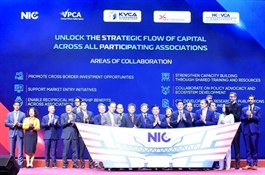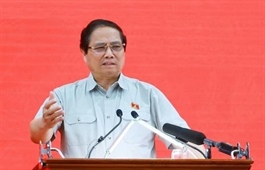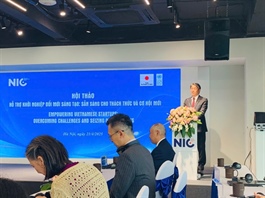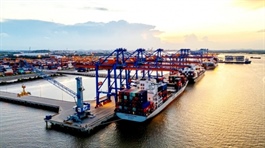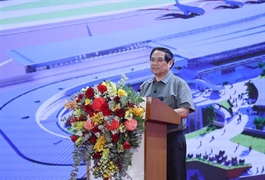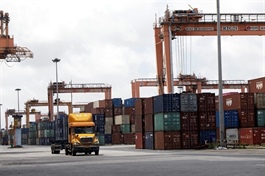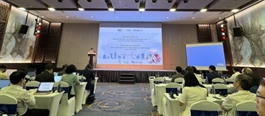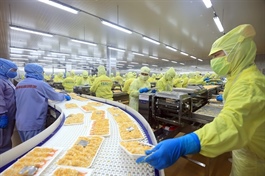Investors from Europe aspire to constructive and open trade
Investors from Europe aspire to constructive and open trade
European companies are finding ways to respond to complex global economic times. Bruno Jaspaert, chairman of the European Chamber of Commerce in Vietnam, discussed with VIR’s Tung Anh about his outlook for EU businesses.
Following the recent announcements on US tariff changes, what has been the reaction among member companies of the European Chamber of Commerce in Vietnam?

Bruno Jaspaert, chairman of the European Chamber of Commerce in Vietnam |
This is undeniably a challenging period marked by rapid changes and global uncertainty, so we decided to do a very specific survey among members, aiming to gauge the impact of these tariffs. The positive news is that the tariffs have been paused for a window of 90 days, and we will be in the new reality only then.
To analyse our survey, we based ourselves on the worst-case scenario. And for us, the worst-case scenario is Vietnam having higher tariffs imposed than its neighbouring countries in Southeast Asia that have a comparable growth trend.
I believe most European companies are quite positive about the future, and they are cautiously optimistic, but of course, there are still businesses at risk - one in four reports that their business is at risk. And the impact that they predict is roughly 20 per cent of their revenue will go out of the window if we face the worst-case scenario. Not surprisingly, about three out of four of our members reported the uncertainty level as moderate to significant.
Many are taking the wait-and-see approach, and only a few have already adopted defensive strategies. A company is not a car which can turn left or turn right. The company is like a big ocean-going vessel. If you want to end up somewhere in a few weeks or months or years from now, it takes a long time to go a little bit to the left or a little bit to the right. There is no one in his right mind who has decided, over the past week, to shut down a factory in Vietnam and open one in the United States.
I believe most of our members are being awakened and see the new window given to us with these 90 days. And time is valuable because it takes time to find an agreement between nations. Normally, it does not happen overnight.
What strategy is to be expected from Vietnam, especially with very busy diplomatic visit schedules in the recent and coming weeks?
We are not in the business of raising tariffs, but in trying to lower tariffs to generate trade opportunities. We very much hope for a virtual cycle generated by offers of zero tariffs, European tariffs are very low already. It is hoped that there will be constructive trade agreements based on lower, if not zero tariffs, rather than moving towards these huge trade barriers.
Vietnam should create its own rules. An example could be tax incentivised products. It’s good for the country for now, tomorrow, and for the future, and it’s the right time for Vietnam. Likewise, it’s a step forward for the country to decouple its dependency on outside supply chains.
The world is much bigger than the US. There are many other markets. It will take time and effort, and it might make a difference in the numbers in terms of GDP growth for Vietnam. It might make an impact, like our members predict, of about 20 per cent on our results for the next years to come. But I believe there are opportunities in the near future.
What are your predictions for the next two years?
I actually believe it will have to get worse before it gets better. There needs to be pain before, perhaps, these policies will change.
I believe there is a golden opportunity, one that we have not had in decades, to forge new ties with the East. For companies that are here, this offers an opportunity to use that platform and ensure that the cost efficiency of that platform can be used for those markets they can trade with.
My prediction is in two years from now, if there are new factories in the US, those factories will only be viable because of the tariffs. That means that those companies can only produce in the US because they’re protected by the tariffs outside contenders cannot come in.
It also means that if one day there are no tariffs, those companies have a massive issue, and that means that those companies can only produce in those production platforms for the US.
In two years from now, this will have been a huge push from the US to have a new world order that will no doubt leave others behind. But ultimately, the whole world will hold steady and will keep their own course. I believe no country can trade on its own, not even the US.
- 16:06 23/04/2025








